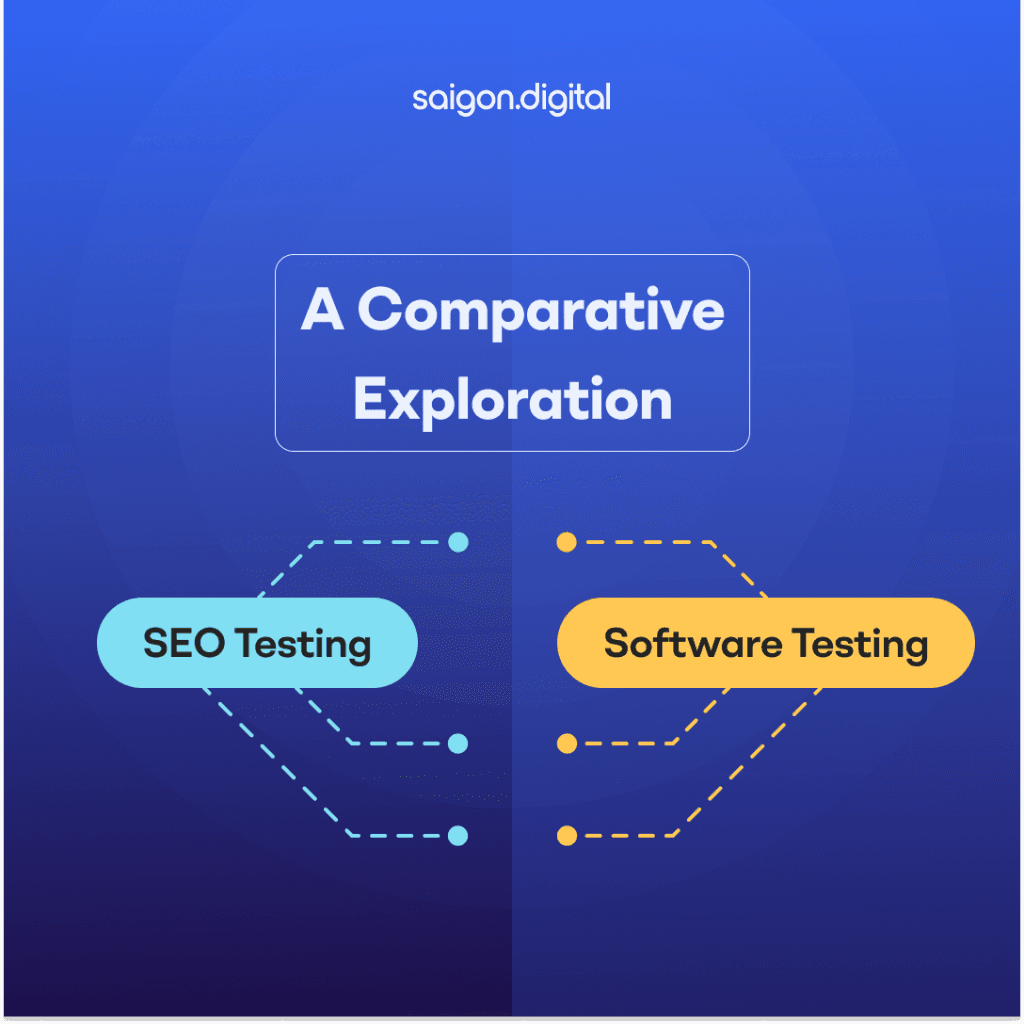
Understanding SEO and Software Testing:
Before diving into the comparison, let's establish a foundational understanding of SEO and software testing:- SEO Testing: SEO involves evaluating and optimising various elements of a website to improve its search engine visibility and ranking. This includes analyzing keywords, meta tags, content structure, and website performance to enhance organic traffic and user engagement.
- Software Testing: Software testing assesses the functionality, usability, and performance of software applications or digital assets. This includes verifying that the software meets specified requirements, identifying defects or issues, and ensuring a seamless user experience.
Comparative Analysis of SEO and Software Testing
Now, let's delve into a comparative analysis of SEO and software testing:
1. Objectives
- SEO Testing: The primary objective of SEO activity is to enhance a website's visibility in search engine results pages (SERPs) and improve organic traffic and user engagement.
- Software Testing: The primary objective of software testing is to ensure the functionality, usability, and performance of software applications or digital assets to deliver a seamless user experience.
2. Focus Areas
- SEO Testing: Focus areas in SEO include keyword optimisation, content relevance, meta tag analysis, website structure, mobile responsiveness, and page load speed.
- Software Testing: Focus areas in software testing include functional testing, usability testing, performance testing, security testing, compatibility testing, and regression testing.
3. Methodologies
- SEO Testing: SEO methodologies may include on-page SEO audits, keyword research and analysis, competitor analysis, content optimisation, and technical SEO assessments.
- Software Testing: Software testing methodologies encompass various approaches such as manual testing, automated testing, exploratory testing, white-box testing, black-box testing, and agile testing methodologies like Scrum and Kanban.
4. Metrics and KPIs
- SEO Testing: SEO metrics and key performance indicators (KPIs) include search engine rankings, organic traffic, click-through rates (CTR), bounce rates, and conversion rates.
- Software Testing: Software testing metrics and KPIs include defect density, defect detection rate, test coverage, pass/fail rates, user satisfaction scores, and application performance metrics.
Collaborative Potential
While SEO and software testing serve different purposes, they share common ground and offer opportunities for collaboration at Saigon Digital:- SEO-Driven Software Testing: Integrating SEO considerations into software testing processes ensures that digital assets meet functional requirements and align with SEO best practices for improved visibility and user experience.
- Performance Optimisation: Collaboration between SEO specialists and software testers can lead to the identification and resolution of performance-related issues, improving website speed, responsiveness, and overall user satisfaction.
- User-Centric Approach: Both SEO and software testing aim to enhance the user experience, whether through intuitive website navigation, relevant content, or seamless functionality. By adopting a user-centric approach, organizations can ensure that digital assets meet the needs and expectations of their target audience.





